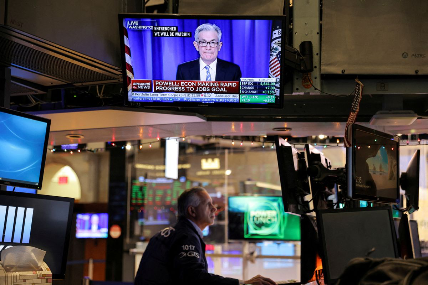The Federal Reserve on Wednesday signaled it is likely to raise U.S. interest rates in March and reaffirmed plans to end its bond purchases that month as well before launching what was characterized as a significant reduction in its asset holdings, according to Reuters.
The combined moves will complete the Fed’s pivot away from the loose monetary policy that has defined the coronavirus pandemic era and toward a more urgent fight against inflation.
Fed Chair Jerome Powell, speaking in a news conference after the end of a two-day policy meeting, said the U.S. central bank will be open-minded as it adjusts monetary policy to keep persistently high inflation from becoming entrenched.
“At this time, we haven’t made any decisions about the path of policy,” Powell said. “I stress again that we’ll be humble and nimble.”
The Fed chief said policymakers have “quite a bit of room to raise interest rates without threatening the labor market” as they remove the extraordinary support provided during the pandemic. “The economy is quite different this time,” Powell said.
“With inflation well above 2 percent and a strong labor market, the Committee expects it will soon be appropriate to raise the target range for the federal funds rate,” the Fed’s rate-setting Federal Open Market Committee said in a unanimous statement after the end of its two-day meeting.
Investors widely expect the Fed to raise its benchmark overnight interest rate from the current near-zero level at the March 15-16 meeting. Federal funds futures have priced in another three rate hikes in 2022 after the March liftoff.
FOMC members also agreed at this week’s meeting on a set of principles for “significantly reducing” the size of the Fed’s massive asset holdings. Officials said they will shrink holdings “primarily” by limiting how much of the principal from maturing bonds it would reinvest each month. That plan would start after the liftoff in interest rates, the Fed said, without yet setting a specific date, pace or final size.
Over time the Fed’s nearly $9 trillion balance sheet would not only be pared down, but shifted away from mortgage-backed securities and weighted towards U.S. Treasuries, “thereby minimizing the effect of Federal Reserve holdings on the allocation of credit across sectors of the economy,” the central bank said.
Powell said policymakers will be ready to change their approach as needed when the Fed begins to shrink its bond holdings.
